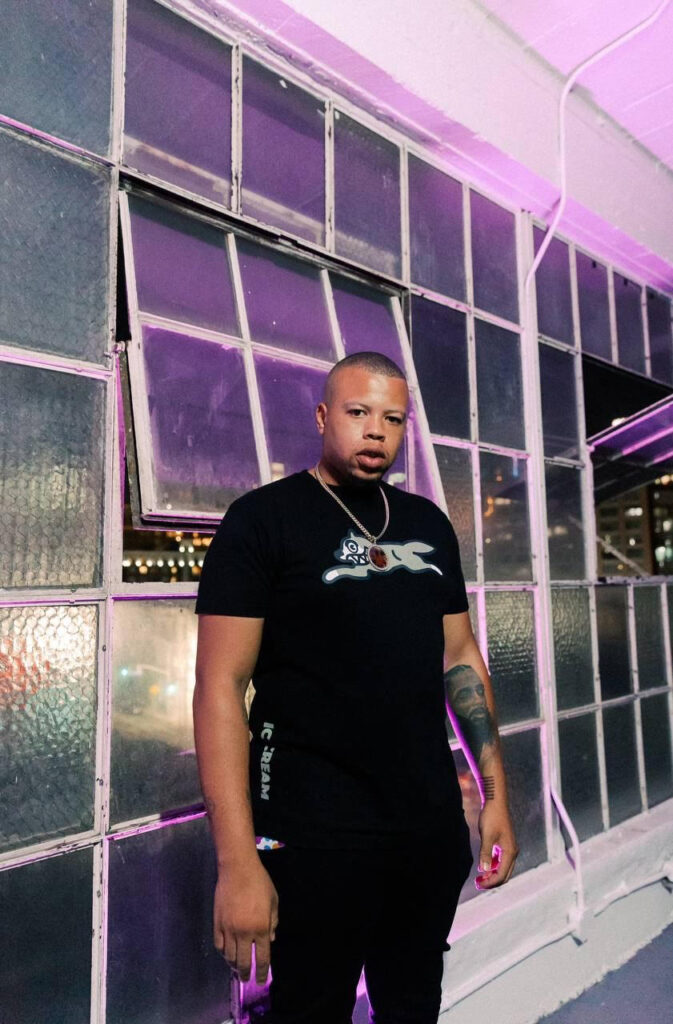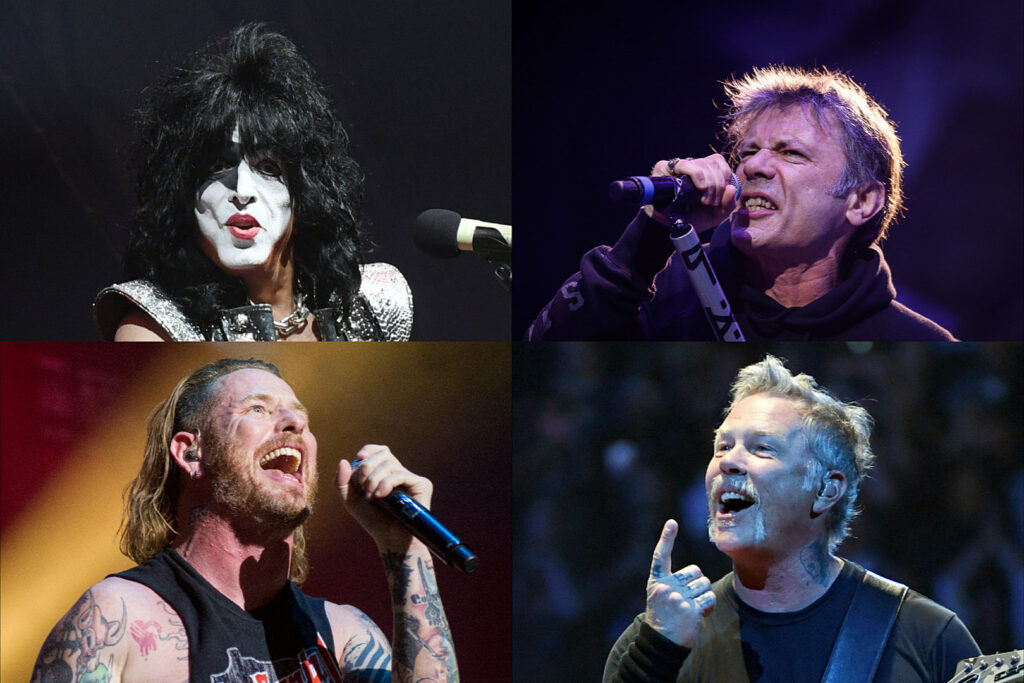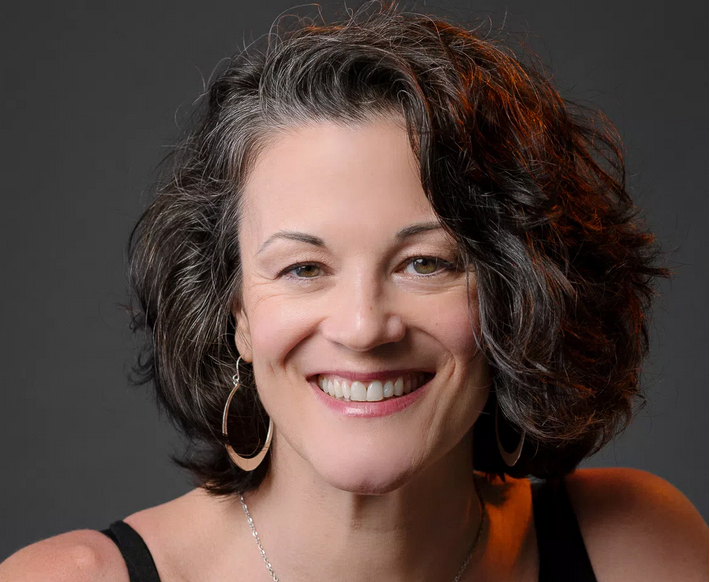“Jazz Is an Inspirational Force”: Behind The Scene with Blue Note Jazz Club’s Alex Kurland

Chris Dave, Savion Glover and Weedie Braimah (Photo: Dervon Dixon)
***
“Great music is great music and it’s special to see how jazz is a common thread and a cornerstone of a lot of music,” observes Alex Kurland, the director of programming and talent buyer at the Blue Note Jazz Club in New York. “Whether it’s funk, jam, jazz, hip hop or R&B, at the end of the day, it’s all connected. Labels and publishing companies work at putting everything in these categories to be able to sell it, but you can make an argument that it’s all one.”
Kurland, who is in early 30s and began working at the venue shortly after graduating from NYU, adds, “Jazz is an inspirational force. It’s a mindset, a philosophical way of approaching music. It’s also a process in thinking about music and the process part is really important. I feel grateful that I am in an environment within the jazz world primarily, and I am able to see where that leads and where it has brought us.”
His purview also includes the Blue Note Jazz Festival, which extends across New York each June. In addition, Kurland has co-managed The Soul Rebels for over a decade. As he considers this range of experiences, he remarks, “With every day, I’m realizing that I know less and less. As I’m working, listening to music and engaging with new music, I’m realizing how little I know. In terms of the artists and the history and the depth of music in general, there’s just so much.”
Can you recall the first time that you set foot in the Blue Note?
The first time was when I was a kid. I definitely credit early memories of seeing music with my parents and my experiences at the Blue Note as very pivotal and influential in terms of where I’m at now—particularly the impact of that music, the intimacy of the room and the overall vibe there.
My live music experiences are drawn from how heavy the vibe is in the environments in which I’m seeing music. I don’t know how to communicate to anyone what a vibe is, or how you generate a vibe or scale a vibe, but when it’s really on and special, you know it and you can feel it, even as a child.
My initial experiences at the Blue Note were very impactful. I remember seeing Chick Corea, Roy Haynes, Joshua Redman and Christian McBride. I found a photo that I took with Chick Corea in the Blue Note dressing room as a 6-year-old kid, and I’m in that dressing room almost every day now.
It becomes so deeply rooted in who you are when you get to hear that level of genius as a young person. It sets a tone for your tastes, or at least it did for me. I still feel the same curiosity around the music and the artists that I felt back then. I hope I never lose that.
At what point in your life did you start to imagine that you might work in the industry?
I was exposed not only to the music but also to the business of the music at an extremely young age. My father is in the music industry and I thought it was fascinating. He was the biggest inspiration when I was young. Not only was I able to see music and be exposed to the artists, but I was able to talk about the business with a resource as close and strong as him. His name is Ted Kurland. He’s a booking agent and a manager, and he was a primary inspiration for me.
How did you come to work with The Soul Rebels and to what extent does managing a band require a different skill set than your role at the Blue Note?
I look at it as the same. It’s a process that’s all connected. To a degree, what I do at the Blue Note is like managing an artist because of the aura and the history—it’s alive. There are a lot of different opportunities, not only in terms of musical styles and collaborations but also in terms of process and projects. Taking a step back, you can think about it as a kind of storytelling with the sequence of shows that’s similar to how an artist’s career is typically managed.
I look at the booking process from an artist manager standpoint rather than as if I’m just filling dates on a calendar. I don’t really practice that kind of process and approach. It doesn’t feel transactional. I really care about these bookings and I hope they’ll be meaningful for the artists.
I first saw The Soul Rebels in New Orleans at Tipitina’s with my dad. We went to see the Dirty Dozen Brass Band and they just so happened to be opening the show. I was a teenager at that time. It was after Katrina and we had gone to New Orleans during the holiday season to work with Habitat for Humanity on the Musician’s Village.
It was a completely unbelievable musical experience just to be in Tip’s for the first time. I’d never experienced anything quite like that level of funk and soul, between the horns and the sousaphone and the reaction from the room. It was a completely explosive experience sound-wise—just the warmth of hearing this ultra funky honking sousaphone coming through a PA.
I don’t think we stayed for the Dozen because it was just so heavy and it was also very late at night. But that was both me and my dad’s first exposure to The Soul Rebels. Then he started working with The Soul Rebels initially, and it evolved into our management partner and I taking over on The Soul Rebels front. But it’s been about 12 years since I started co-managing them.
It’s been an amazing opportunity for me working with that group in particular, as I’ve entered my professional career in the music industry. I was exposed to their level of musicianship and their incredible ability to be flexible as artists. They can go out on the road and support or perform with Metallica, then go out and perform with Rakim and then open for The String Cheese Incident and come on stage with them. Then they might go on tour with Nas or the Wu-Tang Clan and do a series of shows with Marilyn Manson or a pop artist like Katy Perry.
Their ability to be powerful with their horn playing and enter the different worlds of all these artists musically and culturally, while not diminishing or compromising who they are and what they do, has given me a deeper kind of life lesson. At the same time, there’s the rigor and physical demand—they’re like musical athletes.
I’ve learned a lot about music, a lot about artists and a lot about process from managing that band. It’s informed me on so many levels about my work, as well. So that was a gift at a young age.
In booking the Blue Note, do you feel a certain obligation or pressure to honor a particular history or tradition?
No, that’s not how I look at it. I feel a great responsibility to be supportive of artists and supportive of where the music is going. Then that translates into the booking process. It’s inclusive of the past, present and future. So maybe one night is Ron Carter, who’s a complete icon and legend of jazz, and then the next night is Cimafunk. Maybe one night it’s Soul Rebels with Ghostface Killah and Ja Rule, and then it’s Gary Bartz the night after that. Or maybe you’ll have some Karl Denson shows, and then the next night you’ll have Tank and the Bangas or BADBADNOTGOOD. It goes on from there.
I also should say that we’re so grateful for the presence of Robert Glasper within the Blue Note. He has opened the floodgates for a lot of other talent to be exposed to the Blue Note and he’s also been an inspirational force in the bookings. That goes to show you how artist-driven and artist-led the music is. Robert Glasper’s contribution is felt constantly at the Blue Note, whether he’s physically there or not. He inspires a lot of what happens at the Blue Note, and that’s a single artist-driven quality of influence.
What has informed your approach to the summer Jazz Festival, where you’re bringing these artists into other settings?
Most of the time, when we’re presenting shows in other venues outside of the ones that the Blue Note owns and operates, we’re presenting iconic artists in iconic venues. So we’ve had shows within the Blue Note Jazz Festival at Central Park SummerStage— you can’t get more iconic and special than doing shows in Central Park. It’s the same with doing shows with Celebrate Brooklyn! in Prospect Park or at the Beacon Theatre and Town Hall. Those venues have so much integrity and history. They’re iconic institutions in New York, and that’s a shared quality with the artists that we’re booking in these venues and co-presenting together.
I greatly value that element of partnership and collaboration. Just as the artists are collaborative on stage, we are collaborating from a business standpoint—whether it’s coming together and working with other institutions, like co-presenting shows in venues like Central Park SummerStage, or partnering with different promoters at other venues.
Collaboration is really important to us, and it is often what enables some really special moments to come together. So that’s a big part of the Blue Note Jazz Festival in New York for the month of June, when we’re doing our body of shows. Many of them are in collaboration and partnership with other entities that we love working with, including the Brooklyn Bowl.
Thinking back on your earliest days at the Blue Note, can you talk about your initial challenges and what you’ve learned over time?
I went to NYU and when I graduated from school, I met with the owner of the Blue Note, Steven Bensusan, who’s been really unbelievable to me. He’s been an incredible boss and mentor. He hired me out of college and I was doing administration and kind of assisting him in bookings and whatnot. Then that snowballed into starting to book the venue in my 20s.
It was about 13 or 14 years ago when I started working at the Blue Note, but it’s evolved into where I’m at now, thanks to Steve kind of throwing me into the fire. I think the greatest gift you can ever be given as a young person is to be thrown into the fire in terms of taking on a position or a workload or an experience, then having to deal with all the factors around you to execute the job and do it your way, especially in the music industry. It’s sort of the Wild West, but it’s great.
The greatest takeaway, the most important thing about all of this, without a doubt, is relationships. There’s nothing more important than our relationships. That’s true in life and professionally speaking as well. Relationships are at the very top of my value system.
You’ve facilitated so many shows over the years. What’s the first one that comes to mind when I ask you to think of a performance that somewhat unexpectedly knocked you on your butt?
There’s one in particular that was totally over the top. I feel like I’m still recovering from it and I probably always will be. We did a few nights of a special collaboration with three artists who hadn’t performed together. It was the tap dancer Savion Glover, the djembe player Weedie Braimah and Chris Dave on drums. So it was an all rhythm trio and a very deep experience on so many levels. There’s so much history in terms of what that project was about, and it’s something that we all kind of figured out after the first few days. It wasn’t an immediate awareness, but it evolved into really recognizing the depth, historical context and meaning of that project.
These were three complete rhythmic masters yet it turned into a heavy melodic type of show because of their connection. The communication between them was so powerful. It goes to show you that things can transcend. One might think that there would be no melodic notes but Savion’s ability to create sound and bring out all kinds of melodies within his tap dancing—just as Weedie does on the djembe, just as Chris Dave does on the drums—led them to a deeply spiritual space that was pretty emotional for everyone on stage and in the audience. It became about the history of the drum and slavery. The progression of the drum is really powerful.
But there have been so many more as well. I think of all the amazing Robert Glasper moments with his bands, both with and without guests.
I really miss seeing Chick Corea doing anything, including playing at the Blue Note. Then there are some of the great masters that are not around now, like Roy Haynes. He just passed away. I was so fortunate to watch him time and time again at the Blue Note with his band and with different artists. It’s been just an amazing gift to be able to see the greats.
I imagine there are any number of factors that contribute to your decision-making process, but how often will you find yourself booking a show because you want to see it? Maybe it’s someone unknown or an artist who has been at it for a while and still deserves the spotlight.
That’s every day. But it’s just because these shows are so special that I want to see them. They’re meaningful collaborations and special moments. That’s the thing—every night at the Blue Note, there are these moments. They’re not just shows that come and go, and they’re almost bigger than just who people are in the room to see. Sometimes they’re cultural moments, especially with the collaborations. For instance, when it’s Talib Kweli, Rakim, Common and Black Thought on stage and you have Bob James on keys, it kind of transcends the transactional quality of just, “Oh, I’m going to a show tonight.”
I still think about seeing Chick Corea at 5, 6, 7 years old at the Blue Note. It sticks with you because the artists are finding meaning in these types of shows and moments. That’s the inspirational force around the booking process. The booking process is based on aspiring for these shows to be special and meaningful for fans and for culture, but most important for the artists.
Once the artists are really satisfied—when they’re feeling the high and they’re on—then it’s a win because it all comes from that. It’s all artist-centric, artist-led and the music is the driving force in the booking process. From there, special moments take place that become the kind of memories that the people in the room will never forget.
Link to the source article – https://relix.com/articles/detail/jazz-is-an-inspirational-force-behind-the-scene-with-blue-note-jazz-clubs-alex-kurland/
-
ALABS Fxcaster Podcast Equipment Bundle – All-in-One Podcasting Starter Setup with 7-Channel Soundboard, Audio Interface, and 25mm Diaphragm XLR Microphone for Live Streaming, Recording, and TikTok$239,99 Buy product
-
Animated Motion/Sound Activated Musical Multi-Lingual Banjo Skeletons Duo Halloween Fall Indoor Decor$164,99 Buy product
-
Perris Leathers M75BL-6661 Leather Cradle Style Mandolin Straps$9,60 Buy product
-
6 String Acoustic Guitar Bone Bridge Saddle and Nut Real Bone Parts for Acoustic Guitar Replacement$3,99 Buy product
-
Roland GO:KEYS 61-key Music Creation Piano Keyboard with Integrated Bluetooth Speakers (GO-61K) & Piano or Keyboard Case (CB-GO61KP)$379,98 Buy product











Responses